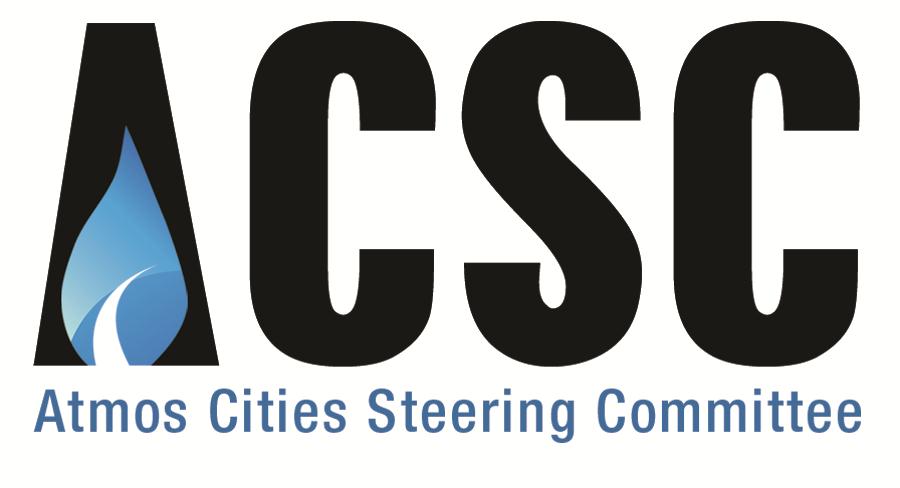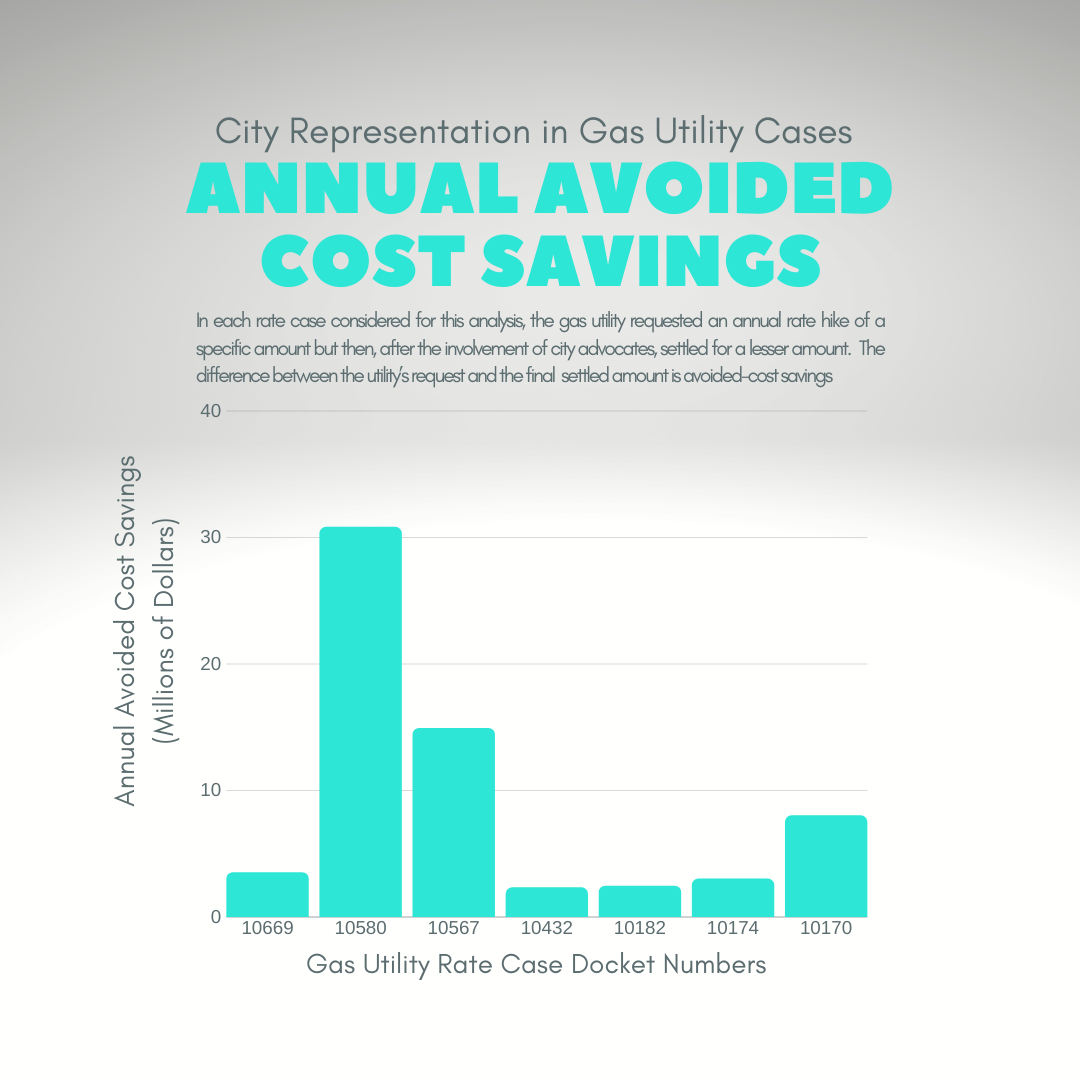Citizens save when cities defend their interests in gas utility cases.

Under state law, cities possess “original jurisdiction” over the rates charged by monopoly gas utilities. This means that gas companies must first go to cities for authorization before raising rates within city limits. The law similarly gives cities the power to intervene at the state level if a utility contests their local rate decisions.
This bifurcated system helps preserve local control, but how does it affect prices? To answer this question, the Atmos Cities Steering Commission has analyzed the outcomes of several major rate cases brought before the Texas Railroad Commission, the agency that adjudicates gas matters at the state level.
The ACSC analysis suggests that the work of city experts in these rate cases delivered significant savings. In each case, the utility received a rate hike reduced by millions of dollars. Overall, the reduction was approximately 50 percent for all proposed rate hikes combined.
THE ANALYSIS
For this analysis, the ACSC considered seven major base rate cases brought by the state’s two largest gas utilities, CenterPoint and Atmos. The analysis begins with base rate cases in 2012, includes only those cases in which cities intervened, and it does not include pending cases. Some cases were settled by the utilities, and others were fully litigated.
In each instance, the utility requested a rate hike of a specific amount but then, after the involvement of city advocates, settled or received a lesser amount. The difference between the amount sought by the utility and the final adopted rate is considered avoided-cost savings, and is the subject of this analysis. Because final rates continue in effect for multiple years, avoided cost savings similarly continue for multiple years.
This analysis includes major base rate cases in the Atmos West Texas region, in the Atmos Mid-Tex region (around Dallas and Fort Worth), in the region covered by CenterPoint’s Texas Coast division, in CenterPoint’s South Texas division, and in CenterPoint Beaumont/East Texas area. Also included is a non-localized Atmos Texas Pipeline case for which cities did not possess original jurisdiction, but in which they intervened because it bore directly on local rates.

OVERALL FINDINGS
- The utilities requested annual increases totaling approximately $169.7 million in the seven cases combined, but received approximately $85.5 million after the involvement of city experts. That represents an approximately 50 percent reduction in the utilities’ requests.
- The annual avoided costs savings accruing to ratepayers from each case ranged from about $2.3 million to more than $50 million.
- In six of the seven cases, the utilities received rate increases although smaller than requested. The reductions ranged from 25 to 47 percent.
- In one of the seven cases, the utility sought a $490,000 rate hike, but instead received a $3 million rate cut.
- The annual avoided cost savings exceeded the cost of cities’ legal and regulatory expenses by a factor of 17-1. However, the actual benefit to ratepayers is substantially greater because the cities’ regulatory expenditures end at the conclusion of each case, while annual avoided-cost savings repeat each year the adopted rates remain in effect. The ACSC has not analyzed that added annual savings here.
The docket numbers for the utility cases highlighted in this analysis are 10669, 10580, 10567, 10432, 10182, 10174 and 10170.
The Atmos Cities Steering Committee also has analyzed separate categories of rate proceedings known as Rate Revenue Mechanism cases and Gas Reliability Infrastructure Program cases. You can see those analyses at the links found here, here, and here.
For other ACSC reports, go here.

